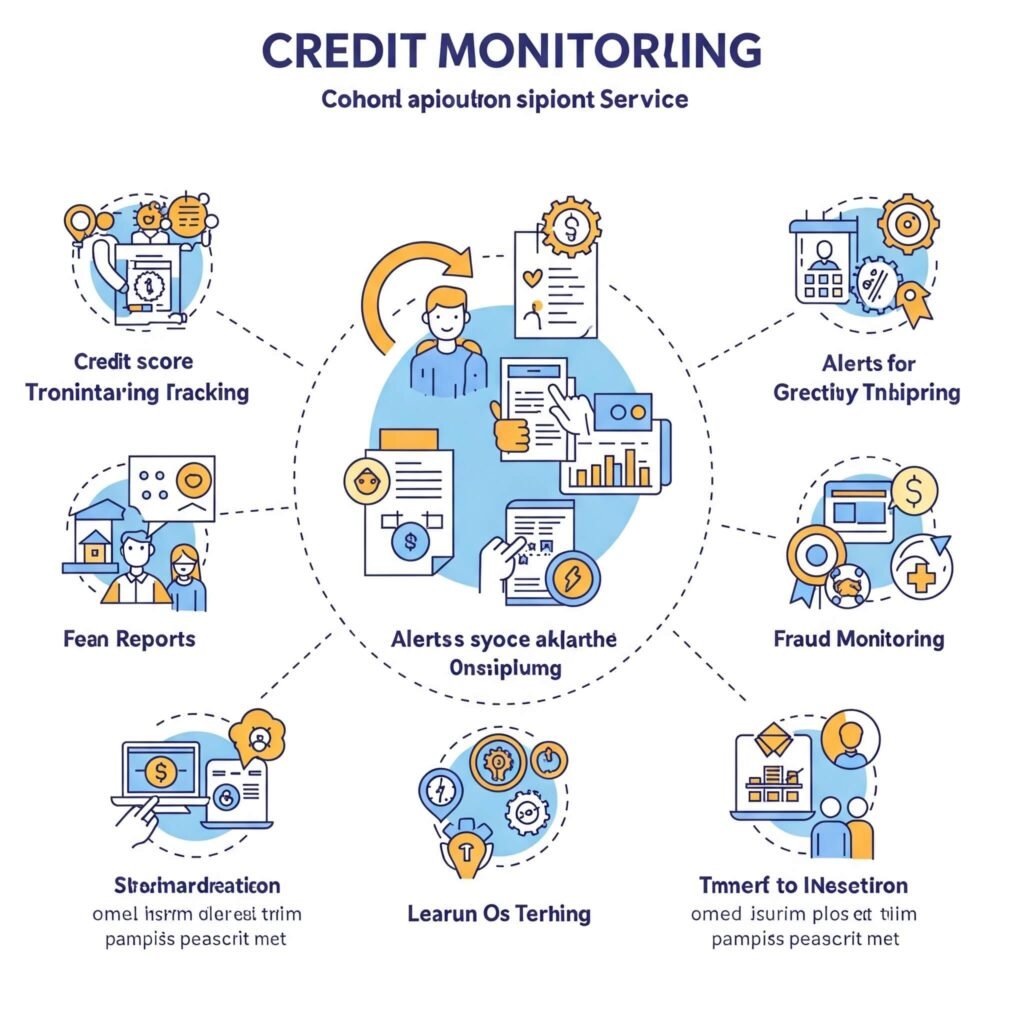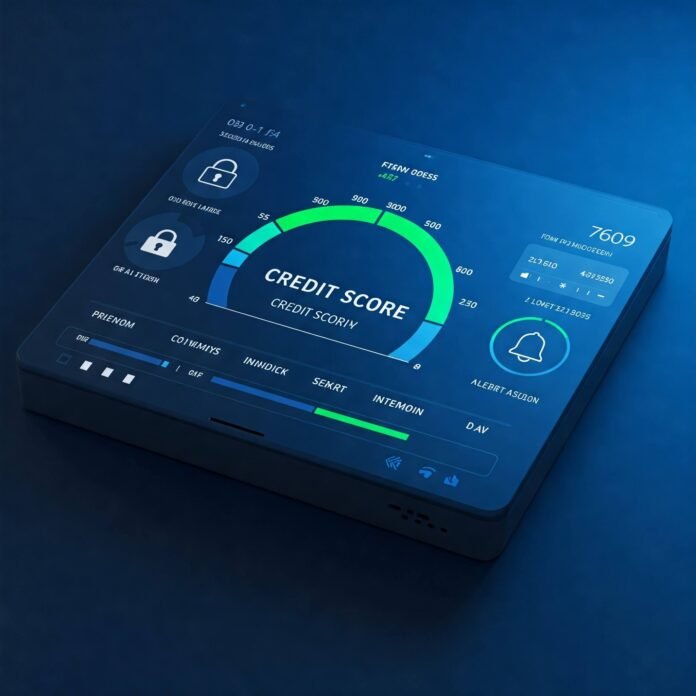Yo, credit monitoring services are like a nosy neighbor keeping tabs on my financial life as I sit in my rainy Seattle apartment, surrounded by empty coffee cups and a laptop that’s one latte spill from disaster. Just last month, I got a fraud alert about a weird charge on my credit report, and I nearly choked on my artisanal donut – thank God for monitoring, but was it worth the subscription? The air smells like damp flannel and regret, and I’m spilling the tea on the pros and cons of services. I’m no money maven – my budget’s more like a soggy paper towel – but I’ve learned the hard way whether these services are clutch or a cash grab. Services are a mixed bag, and I’m dropping my raw, messy, sometimes contradictory thoughts from my Pacific Northwest chaos. Let’s wade through this financial fog together.
My Panic Attack Over Credit Monitoring Services
I’m at a Fremont coffee shop, dodging hipsters and scrolling X, when I see a post about identity theft – credit monitoring services could’ve saved that guy’s bacon. I signed up for Experian after a sketchy online purchase, but I freaked when they charged me $20 a month – like, did I just get scammed to avoid a scam? Nerd Wallet says monitoring catches fraud fast, which saved my butt once. But Forbes warns the costs can add up if you’re not careful. Credit monitoring services feel like a security blanket, but I’m torn – I love the peace of mind but hate the hit to my wallet. Like, seriously, why’s this so clutch yet so pricey? Outbound links: How to Compare Bank Accounts and Find the Best One for You

Why Fraud Alerts Are a Win for Credit Monitoring Services
Diving into credit monitoring services, fraud alerts are like having a guard dog for your credit score. I got an alert about a $300 charge I didn’t make, and I was shaking, thinking someone was living it up on my dime. Investopedia explains monitoring services track your report for weird activity, which is a game-changer for newbies like me. I bragged to my buddy about my “secure vibes,” then realized I’d ignored a free monitoring option – total clown move. Credit score protection with alerts is dope, but I’m learning while sweating through my hoodie, wondering if I’m overpaying. It’s this mix of “hell yeah, safety!” and “ugh, I’m a mess!” that keeps me up.
My Dumb Fumbles with Credit Monitoring Services
Man, expose my worst screw-ups. I signed up for a service, thinking I was untouchable, then ignored an alert ‘cause I was too busy binging true crime podcasts – turns out, it was a legit fraud attempt, and I barely caught it. CNBC reports that 30% of users miss alerts due to notification overload, and I’m the poster child for that stat.My contradictory vibe? I want protection but hate the spam. Tip from my mess: check alerts daily and don’t be me, zoning out while sipping overpriced coffee. Outbound links: How to Use a Credit Card Balance Transfer to Save Money on Debt?
Outbound links: Learn more about credit bureaus at Experian’s official site.

Why Costs Can Sting with Credit Monitoring Services
Zooming in on credit monitoring services, the price tag can hit hard. I’ve been obsessively checking my Experian app from my balcony, with Seattle’s rain mocking my broke vibes. CNET says some services cost $30 a month, which feels like a punch when free options like Credit Karma exist. I paid for a premium plan once, thinking it was worth it, then realized I didn’t need half the features. My advice? Compare free vs. paid plans – it’s like picking the right coffee roast.
Deciding If Credit Monitoring Services Are Worth It in 2025
Peering into the future, credit monitoring services have me cautiously hopeful, scribbling notes while ferries hum in the Puget Sound. Bankrate notes that new AI-driven monitoring is catching fraud faster in 2025. I’m dreaming of a stress-free credit score, but scared I’ll botch it with another dumb oversight. Credit monitoring services are evolving, and I’m ready to level up, even if my bank account’s whining.
Outbound links: Explore monitoring limitations via the Federal Trade Commission.

Tips for Navigating Credit
Here’s my shaky playbook for credit score protection:
- Try free options: Credit Karma is solid for basics – saved me cash.
- Check alerts daily: Don’t ignore notifications like I did.
- Compare plans: Paid services like Experian are cool, but weigh the cost.
- Stay scam-savvy: Forbes has tips on spotting fraud.
Anyway, that’s my raw take on credit monitoring services – messy, human, and full of my screw-ups. I’m just trying to protect my credit while dreaming of financial flexes. Got monitoring tips or fraud horror stories? Hit up NerdWallet for more or drop a comment – let’s swap tales over virtual cold brew.
Outbound links: Read unbiased reviews of monitoring services at Consumer Reports.



